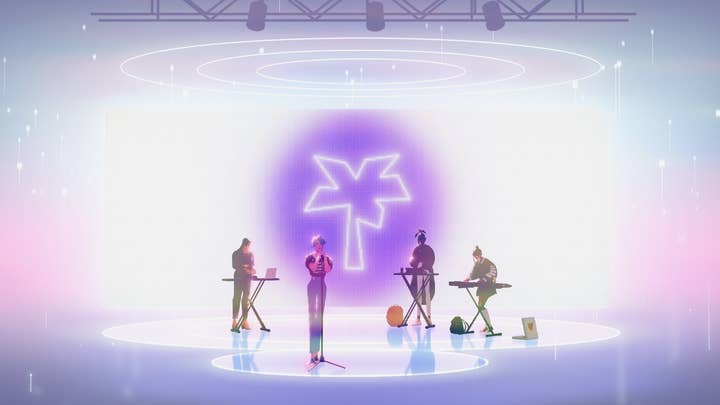Team OFK's double act as a game developer and virtual band
Creative director Teddy Dief and lead programmer Jarryd Huntley on making fictional music biopic We Are OFK a reality
Virtual band OFK's introduction couldn't have been more timely during the 2020 edition of The Game Awards, which was also hosted virtually due to the pandemic.
It wasn't just the premiere of dreamy indie-pop single 'Follow/Unfollow' but also the announcement that the band's story would be getting told in a game, or 'interactive series' as We Are OFK is described.
Establishing the band's members – keyboardist and manager Itsumi Saito, producer Jey Zhang, audiovisual artist Carter Flores, and vocalist Luca Le Fae – took a prominent focus, which even Edge magazine played along with.
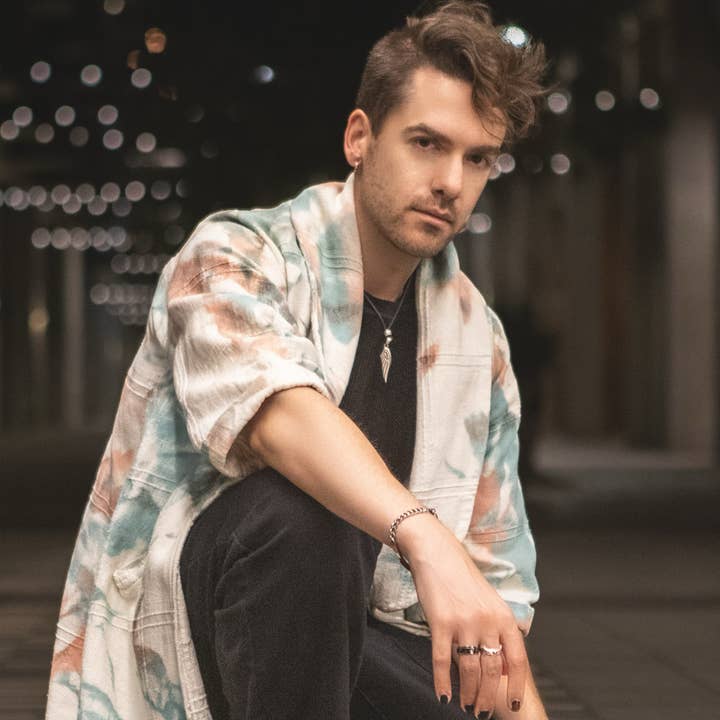
The publication introduced the game as a project that writer and director Teddy Dief decided to work on after meeting Saito and Le Fae at GDC in 2018 when the two were working in the games industry at the time. The ruse was revealed in the following issue: both the band and the game are actually the creation of Team OFK – although both aspects were also developed in tandem, rather than one being necessarily the vehicle for the other.
"It is true that it is a band in the technical sense – it is a musical artist that is operating in the music industry, so that was something we wanted to doubly reinforce, because there are so many games projects that present themselves as music projects, but don't follow through on that," explains Dief.
"Obviously, the largest labour of this production and the largest creative input has gone into the series and getting people invested in the characters and their story. But it's always been important that people understand what the dual purpose of the project is."
Dief had been interested in the idea of a virtual band since first seeing Japanese vocaloid Hatsune Miku performing 'live' in LA back in 2016. When they met with video game indie fund Kowloon Nights, discussion turned to funding what was initially "a sitcom-esque television format story that would tell the story of creative people trying to make things." Given how many members in the team had a musical background, it made sense that the creative in question would be making music, though Dief takes this even further by being both the voice and singing vocals for Le Fae.
"The episodic nature changes the way people talk about it. If it was one bingeable thing, it might be hard to pick out special moments"
Jarryd Huntley, Team OFK
It's rare for a developer to put so much of themselves into their game, unless by way of an easter egg, or when Remedy's Sam Lake modelled Max Payne on his own likeness. But Dief's credits in We Are OFK are extensive, as showrunner, writer, actor, and singer. Were they wary that it might appear as a vanity project rather than the collaborative effort it is?
"That was the big risk for me personally, wanting to do more performance, and looking for an outlet for that," they say. "But I wanted to do a lot more checks along the way with the more established professionals in each field. When we started working with Khris Brown, our performance director, I asked them, 'Do you think that I can do this? I want to open up the door to keep a dialogue going about whether you feel like this cast is working with me in it'."
Similarly, the fiction of the band and the reality of the developers making the game playfully integrated with one another, such as having lead developer Jarryd Huntley co-presenting with Le Fae on a Nintendo Indie World stream announce the series' release on Switch. Meanwhile in-game, the band also makes references to the real song writers Thom Powers and Luna Shadows.
"We did start with this idea of being more like early Gorillaz where we're hiding behind the screen, very Wizard of Oz," Dief adds. "But over time, we realised that the cost is much greater in terms of how difficult it becomes to credit actual people for their work, or making the team feel involved in the project, and having everyone feel like a cohesive unit."
One common criticism with We Are OFK has been its limited interactivity, where scenes and dialogue play out with barely any input from the player – apart from when the characters are on their phones, or in playable music videos. However, that's also why it has been explicitly advertised as an interactive series instead of a game. Even its format, including a display of each episode's runtime, resembles Netflix.
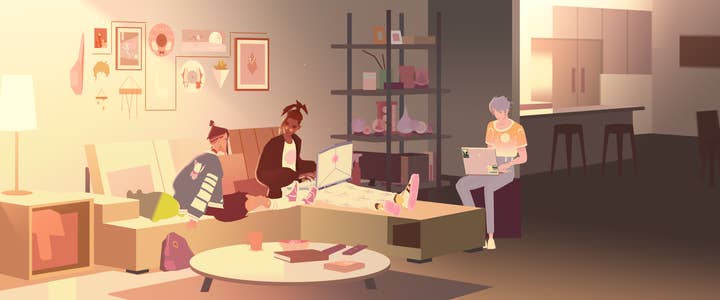
Before anyone asks why it wasn't simply pitched to Netflix, Dief clarifies that it's actually very difficult in practice.
"You're not even allowed to pitch a television show unless you have access to a Hollywood agent. That's just how that industry works," they say. "Whereas in games, if you're an indie game developer, you can end up at a party and meet a representative from Sony, and maybe set up a meeting."
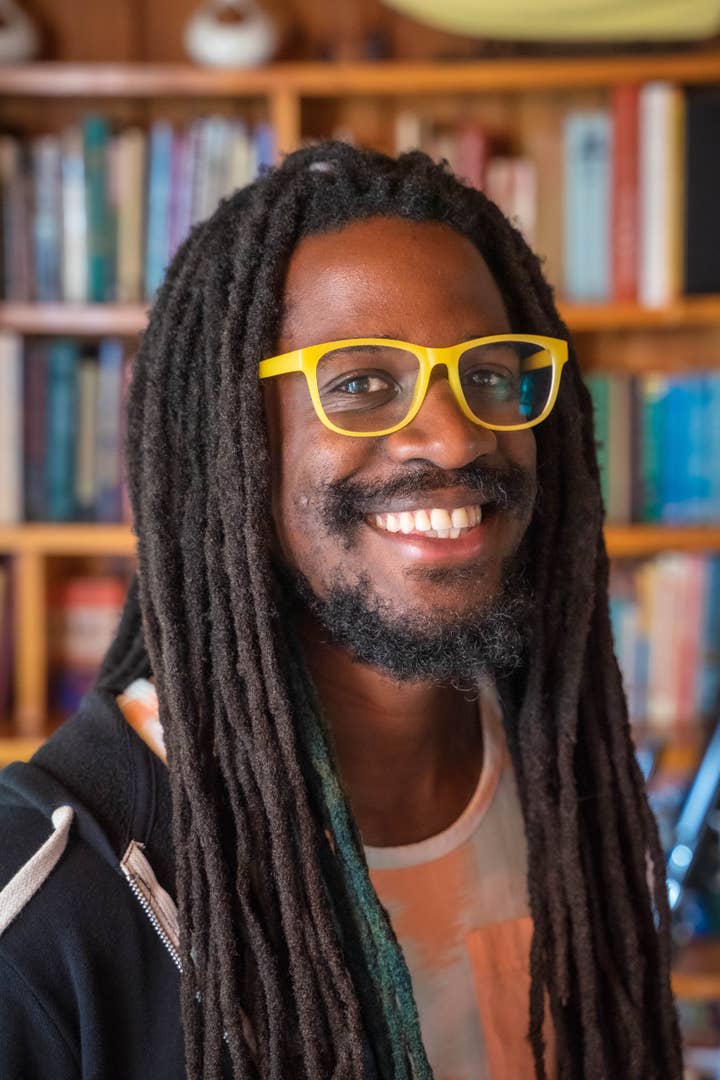
They also believe the interactive elements are important even if it may appear minimal: "It does matter in terms of engaging with the thought processes of the characters, engaging with the music and videos – it's still creating a connection with the player.
"The reality is that our primary target is not necessarily people who are steeped in games. Not that they're not welcome, [but] we're really trying to reach out to a broader audience. When we reach people who truly don't play games and are uncomfortable with game mechanics, they often come at it from a different perspective, which is, 'Oh, it's interactive!' and 'I get more from this than I was expecting'."
That also presented an adjustment for a team who traditionally worked on games with more interactivity. "The approach to the tools and how we dealt with the wealth of content was a lot more movie-like, but we're using a game engine, so the tools didn't exist," admits Huntley. "But with the audience that we were looking for, besides people who don't traditionally play games, one of the player types we had in mind were people playing as groups, whether it be couples or a group of friends."
The series also did something unusual with its release structure. The episodic format has been used in other games for practical purposes and staggered over a number of months in order to complete development on the next episode. We Are OFK, however, was finished at release – but episodes were released on a weekly basis.
Dief explains the intent behind this was to capture a similar energy and anticipation that comes from a weekly TV show, which some streaming services still opt for. "I know people don't like to wait, but one of the big adages of game design is you don't give players what they think they want, you give them the experience that you've designed for them, and sometimes that means creating tension for them," they smile.
Huntley adds, "The episodic nature also changes the way that people talk about the experience. Because people are like, 'I really loved this moment in episode two,' or 'I love the change in tone in episode four', whereas if it was one bingeable thing, it might be hard to pick out those special moments."
"We started with this idea of being more like early Gorillaz where we're hiding behind the screen, very Wizard of Oz"
Teddy Dief, Team OFK
It also allows each music video (which culminates towards the end of each episode as a song from the band's debut EP) to shine, much like when releasing a single. Incidentally, this was behind the decision behind launching the series with two episodes rather than just one.
"Because we had already released the first song at the Game Awards, we wanted the premiere to include a new song," Dief explains. "The people who have been following the band almost two years since the announcement were waiting for our music, so it'd feel anticlimactic for it to be out and then waiting next week for a new song."
Despite limited interactivity and the episodic nature, Dief says reception has been positive for the team. "I think that the timbre of the audience that we have attracted means they have been open to celebrating their anticipation, instead of having gamer entitlement," they continue. "It has been nice to see that we've cultivated an audience who understand that this is all intentional. They're not going to get on Twitter and call us names."
Might it inspire more developers and creators who just want to tell a linear story to opt for an interactive series format? Dief doesn't see why not ("It's just software, right?").
Huntley adds, "One of the advantages to a game and using a game engine is you have a lot of flexibility. You're able to come up with new shots and angles, or adjust things for continuity, whereas with film, what you have on film is what you have. I definitely think that this is a space for more growth, especially as media is blending and becoming less defined."
The question is what is the future for the band after We Are OFK? Without spoiling story details, the series essentially concludes in the present day where the band has fully formed and just released their debut EP (which can also be bought and streamed for real).
"Even if we wanted to, we can't make more story until there has been more calendar time for the band to have experiences," explains Dief. "We can't make a story about the band going on tour unless the band goes on tour."
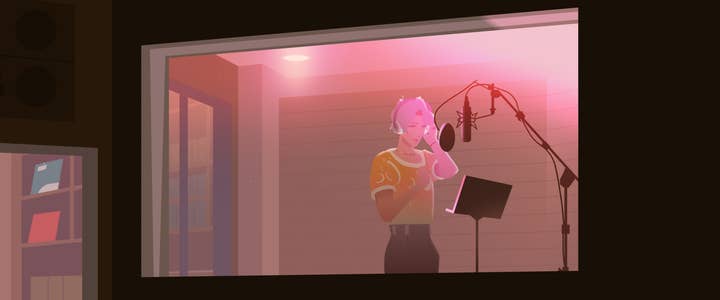
Whether it's actually playing shows or releasing new music, plans for the band are quietly gestating, so there is the intention for it to live on even as the development team is wrapping up. In the meantime, the band will remain active through other channels such as Twitter and Twitch, while TikTok is also another important avenue for content, collaboration, and making friends with other musicians.
The hope is also that the series will have the same enduring lifecycle as music does.
"You release a game, you watch your sales be strong, and then eventually it peters out as the news cycle moves on, but in music and music fandom, it's quite the opposite," Dief explains. "We have watched our monthly listener numbers go up every month since December 2020, even when we're not really doing anything because that's just how music works.
"The hope is we have made a story about this band that holds up, and the art is not going to look dated in a couple of years. If you like this band, here's their origin story. And that hopefully just continues to be relevant as the band continues and more people become familiar with them."
